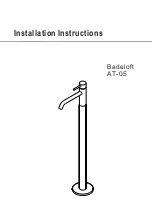
EIP-200S Ethernet/IP Adapter
2.6 Device profile: supported CIP objects
EIP-200S Ethernet/IP Adapter Distributed I/O System
38
System Manual, 06/2018, A5E44345053-AB
Media Counters (STRUCT of)
Name
Data Type
Description of Attribute
Alignment Errors
UDINT
Frames received that are not an integral number of oc-
tets in length
FCS Errors
UDINT
Frames received that do not pass the FCS check
Single Collisions
UDINT
Successfully transmitted frames which experienced ex-
actly one collision
Multiple Collisions
UDINT
Successfully transmitted frames which experienced more
than one collision
SQE Test Errors
UDINT
Number of times SQE test error message is generated
Deferred Transmission UDINT
Frames for which first transmission attempt is delayed
because the medium is busy
Late Collisions
UDINT
Number of times a collision is detected later than 512 bit-
times into the transmission of a packet
Excessive Collisions
UDINT
Frames for which transmission fails due to excessive
collisions.
MAC Transmit Errors
UDINT
Frames for which transmission fails due to an internal
MAC sublayer transmit error.
Carrier Sense Errors
UDINT
Times that the carrier sense condition was lost or never
asserted when attempting to transmit a frame
Frame Too Long
UDINT
Frames received that exceed the maximum permitted
frame size
MAC Receive Errors
UDINT
Frames for which reception on an interface fails due to
an internal MAC sublayer receive error
Interface Control attribute
The Interface Control attribute is a structure consisting of Forced Interface Speed and
Control Bits.
If the autonegotiate bit is 0, the Forced Interface Speed bits indicate the speed at which the
interface operates. Speed is specified in megabits per second; for example, for 10 Mbps
Ethernet, the Interface Speed is 10. Interfaces not supporting the requested speed return
0x09 (Invalid Attribute Value). If autonegotiation is enabled, attempting to set the Forced
Interface Speed results in a response of 0x0C (Object State Conflict).
















































